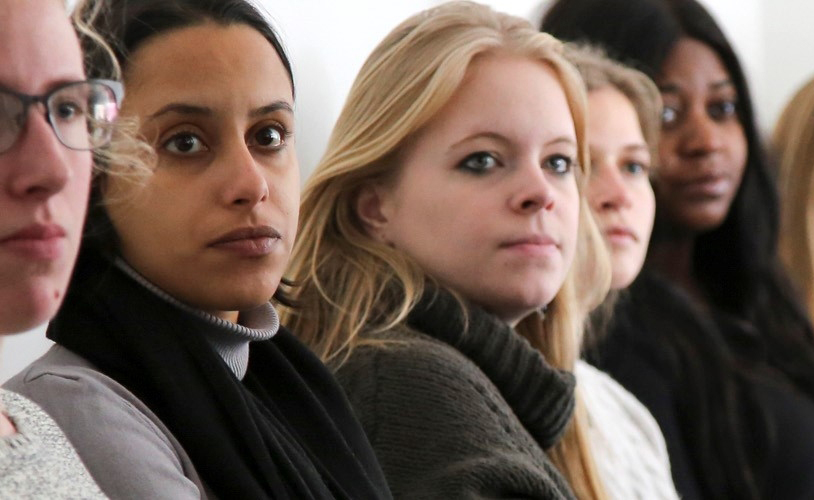Academic departments throughout the College of Liberal Arts and Sciences engage in impactful research on vital issues of diversity, equity, and inclusion. This faculty and student scholarship advances knowledge and informs University of Iowa teaching and public engagement.
 Department of Psychological and Brain Sciences (PBS)
Department of Psychological and Brain Sciences (PBS)
A new DEI committee was established in 2019 to develop a DEI Strategic Plan for PBS (2019); the DEI Strategic Plan was submitted to CLAS (2019).
The DEO for PBS has directly and publicly communicated with faculty, staff, and students to condemn racism and racial violence.
The PBS DEI committee updated the departmental web page to include a diversity page and to generally emphasize our commitment to diversity.
The Department of Psychological and Brain Sciences and the Neuroscience Graduate Program hosted the Diversity Virtual Visit on October 10, 2020.
The event provided information to prospective graduate students from underrepresented groups about PBS's graduate program, the University of Iowa, and Iowa City. The event was very well attended, with individuals from across the U.S., as well as from Africa and South America.
PBS engaged Restorative Community Partners, LLC to develop a customized DEI training program for faculty, staff, and students called Cultural Proficiency and Anti-Racist Work Climates.
PBS invites diverse speakers to discuss diversity-related issues.
PBS is working with other science departments in CLAS to host events in March for the CLAS-sponsored initiative on “Pursuing Racial Justice at the University of Iowa.”
Increasing diversity among graduate students in PBS
PBS dropped GRE scores from graduate applications, because of evidence showing that the test puts underrepresented groups at a disadvantage.
Organizations developed by PBS students
Our Collective Brains is an organization for supporting URM and first-generation undergraduate students in psychological science. It was founded and is run by PBS graduate students (2018-present). Our Collective Brains won the UI's Diversity Catalyst Award for 2019-20. The Diversity Catalyst Award is given by the Division of Diversity, Equity, and Inclusion to honor individuals, organizations, and departments at the University of Iowa who have gone above and beyond to engage in distinctive and innovative initiatives that have promoted an inclusive, equitable, and diverse campus community.
PBS graduate students developed the Bridging the Gap in Psyience (BGP) graduate student organization to create a community by forming professional and social connections with fellow BIPOC graduate students. Additionally, students gain access to a wide range of resources to foster academic and leadership development. This program aims to collectively find solutions for issues disproportionately affecting BIPOC graduate students with a goal of helping to fill the gap in the training of BIPOC psychologists and neuroscientists.
PBS graduate students also developed the Gateway to Psyience outreach program to facilitate a wider range of scientific competency and literacy in the next generation of scientific consumers through multiple events targeted at 9-12 grade students of all ethnicities, socioeconomic classes, and abilities, with an emphasis on BIPOC students. Graduate students mentor a group of highly motivated high school students, exposing them to scientific concepts and research and assisting them in projects for annual science fairs. Graduate students also host after-school workshops with scientific demonstrations for any interested high school students. These events create supportive relationships between graduate students from the PBS/Iowa Neuroscience Institute programs and high school students. Additionally, it introduces high school students to the PBS department and psychology major at the University of Iowa, recruiting URM into the program. Finally, graduate students will benefit by improving their cultural competency through mentoring students from diverse backgrounds and improving their teaching by making lessons accessible to all students, following the Universal Design for Learning principles. Overall, this program is designed to empower the youth to grow as researchers and motivate them to become scientists/researchers in the future.